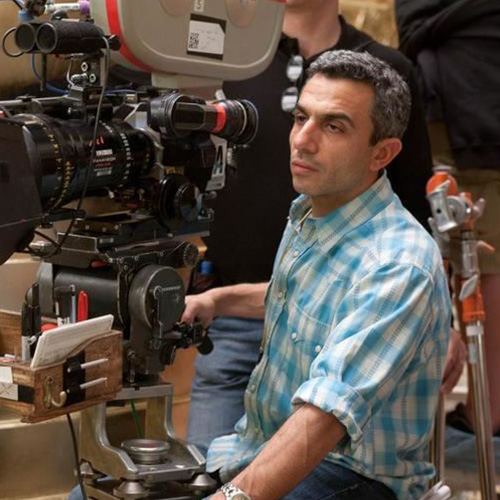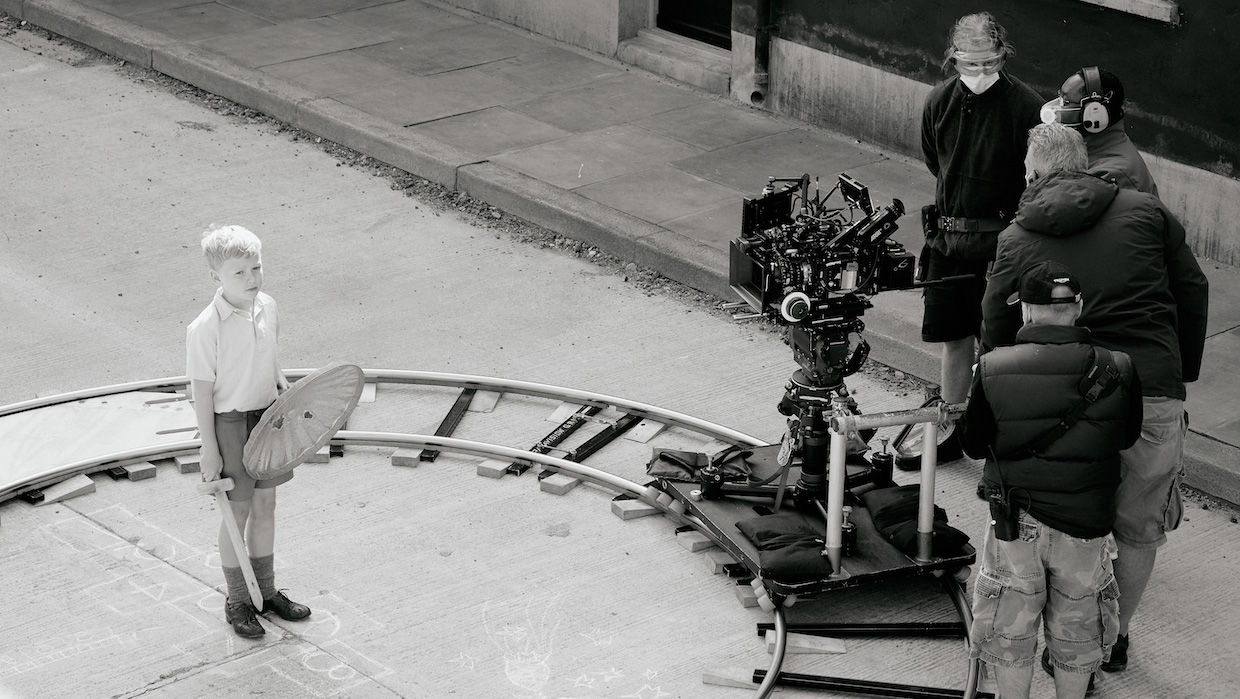The call was the first step. As Mr. Zambarloukos lets me know in our initial communication, these days he enjoys no free afternoons or weekends since the new project he is photographing for requires him to be shooting six days a week. However, he feels that being asked back to have this chat is like giving back something to the place that gave him so much. And so, on his drive home from a long day’s shoot, I get the call.
Although we don’t see each other, his enthusiasm to narrate his former English School days is evident. He recounts the start of friendships that lasted a lifetime, his love for Math, but also a deep appreciation for his Art teacher, Mr. Kouroushis. “The thing I carry with me the most from the English School has got to be my time in the Art room during lessons with Nicos Kouroushis, who fortunately I am still friends with today. That was what laid the foundation for a methodology that I used at St. Martins School of Art, later at the American Film Institute and even in my work today. That revolves around the idea that the journey of finding the final image is just as important as the final image itself.”
The notion of the journey, in true Cavafy “Ithaca” style, seems to be central in Mr. Zambarloukos’ path throughout. As a current English School student, you cannot help but wonder. How exactly did he go from taking his A-Levels in the school Hall to having his name appearing in the opening credits of the biggest Hollywood productions? In my eager attempt to make out his methodology for formulating a successful path, he calms me down: “It seems to me that the most adaptable people are the happiest people. Our goals are nothing else but a constant pursuit of contentment and happiness. I’ve found that often comes from being useful to yourself, your family, and society and that was always a big part of my thought process. If you are fully immersed to what you set out to do, without being fixated on long term goals, good things will happen. The hard work and training shouldn’t look like hard work, it should be effortless. This doesn’t mean that it shouldn’t be exhausting or overwhelming – but you should lose yourself in it. If you’re not doing that, then you’re probably doing the wrong thing. To be good at something, you need lots of time and that’s the only way you can make time disappear. Metaphorically, at least.”
It struck me when I read another interview of his, in which he mentions that when younger, he had “zero interest to be a filmmaker”. In formulating a path that is unlike the rest around him, he never found an obstacle. “At school I studied Art, Maths, Physics and Classical Civilization and really, I’d say any clash I faced in terms of what I were to follow was only internal and never imposed by the school or my parents. I really loved Art and Maths, so the options for me were Art, Architecture, and Graphic Design, even though in the end, I pursued the purest of the three. I probably would have been just as happy doing Architecture or Graphic Design, although I would have never discovered cinema if I hadn’t studied Fine Arts. I was always driven by what I was good at and what I could be useful at.”
It is this same effortless composure that only propelled him forward: “This perseverance of something is a double-edged sword; maybe you’re not getting there because it’s not meant for you. Especially in the Arts professions, I think that sometimes you might have an idea or an image of who you want to be and that’s not who you really are. For example, most people I know want to be directors. They don’t consider the fact that the film industry has so many other jobs. I, for one, don’t want to be a director because I know what a great director is like – I’ve worked with many of them. In the same way, those same directors wouldn’t make great cinematographers. It’s a different skillset, but still all of it contributes to storytelling. And storytelling – that I’ve found early on that I belonged to.” Despite being a high-profile professional, his humble nature is refreshing: “I could give up filmmaking today and be pretty happy. The thing I couldn’t lose is doing watersports – that’s a bigger part of who I am rather than my occupation. I have an occupation that many would call a passion and it is a passion, but I think we all are so much more than what we do professionally.”
We talk on a Thursday evening, around two weeks after the 94th Oscar Awards Ceremony. Mr. Zambarloukos’ recent collaboration with director Kenneth Branagh, “Belfast”, a memoir of Branagh’s childhood years in the titular city, amassed 6 Academy Awards out of its 7 nominations. Mr. Zambarloukos’ name had been heavily betted on for a Best Cinematography nomination in the weeks leading up to the reveals. Despite recognizing the honor, not being nominated in the end made no difference to him: “I always try to detach myself from something that I cannot control, even though it’s great to have people thinking that being nominated was a consideration. I’m not an athlete running towards a finish line, I won the first day I walked on the set of “Belfast”. If people are going to the cinema and watching this film, then that means we’ve produced something good – that’s why I make films. However, what I’m particularly happy about is that a film that is small, black and white, very personal and talks about universal themes of family and conflict has been received in such a positive way.”, he remarks.
In regard to his experience in shooting “Belfast”, he names it his most personal so far. “I’ve worked with Ken (Kenneth Branagh) for fifteen years and this is our eighth film together. We had previously talked about his childhood but, on this film, he opened up to me about a traumatic event that changed him forever. On one level, that’s a director with his cinematographer, planning a film. On another level, however, these are two friends sharing a personal experience.” In Mr. Zambarloukos’ case, Cyprus was one of these experiences. The notion of a military presence, experiencing conflict at a tender age, as well as moving to Dubai with his family in 1974 were all parallels he had found with the Trouble Wars in Ireland and Branagh’s story. Although now only visiting to see family and enjoy the sea, he is eager to clarify that Cyprus will always be his home and where he belongs. “Ultimately, this film was a great story, and Ken really outdid himself with writing and directing this. It felt like something really special was happening from the start and it gave us the confidence to do things that were slightly more personal, rather than just great stories and great movies.”, he adds.
The final question I had planned for Mr. Zambarloukos read “Are dreams worth chasing?”, however by the end of our succinct conversation I realize that he isn’t much of a dreamer – at least not as much as a doer. “You cannot do anything without visualizing yourself doing it first. This is not about false dreams or fairytales or anything like that. If your intent is correct, then your journey will lead you where it should. First, see for yourself where you want to be. And then, just get there.”, he confirms.

You cannot do anything without visualizing yourself doing it first. This is not about false dreams or fairytales or anything like that. If your intent is correct, then your journey will lead you where it should. First, see for yourself where you want to be. And then, just get there



